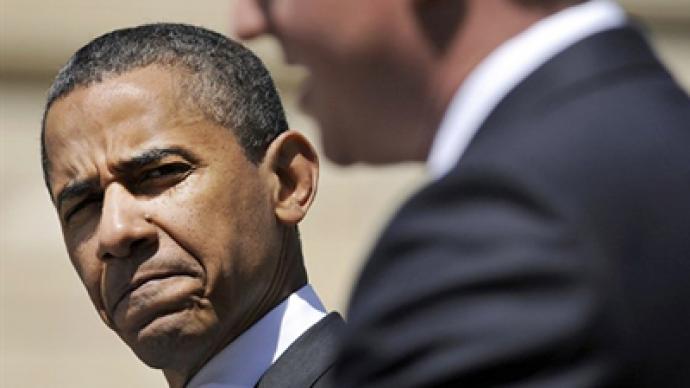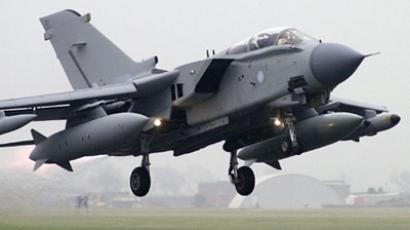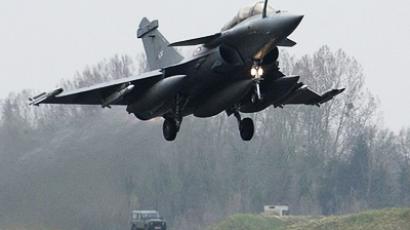"US is reluctant partner in Libya" – British MP

Barry Gardiner, a Labor member of the British Parliament, claimed the US is in the rearguard of the North African military campaign.
Gardiner pointed out that the Libyan war is not a US policy that is being carried out by the UK and France.“America is absolutely in the rearguard of this action,” he said. “It really is almost repaying past debts, that the Americans have seen that they have to go with Britain on this one.”“It’s actually very much the UK and France that have been in the lead – both politically and militarily, and the US has been a reluctant partner, I would say, rather than calling the shots,” Gardiner added.
US participation in the Libyan war was never authorized by Congress, noted Robert Naiman, the policy director at the US-based think tank Just Foreign Policy.Naiman says the notion that the US, UK and France are supporting demand for democracy and human rights in the Arab world is absurd. There has been a lot of rhetoric about human rights in Libya because the US, Britain and France wanted to intervene, said Naiman, but they have been crucially silent over the government crackdown in Bahrain – a key US ally in the region that hosts the US navy.“The issue is not whether or not we want the US and Britain to cooperate,” he said. “The question is, to cooperate to do what? We do not want them to cooperate to bomb and invade other people’s countries, but we want them to cooperate to support peace, democracy and human rights.”
Patrick Hayes, a reporter for the London-based Spiked magazine, says that the US, given its stance in the Libyan campaign and other circumstances surrounding Obama’s visit to London, is masking the fact that it does not have the power or influence it used to have.“Historically, the UK has used this relationship [with the US] to manage its decline on the world stage, to keep the appearance of being a global power, while behind the scenes diminishing economically and politically,” he said. “And what we are seeing now, really, is America doing the same thing.”“It’s hiding behind this ‘essential’ relationship, at the same time trying to manage its political decline, because as we’ve seen with the recent events in Libya, in the Middle East, America is being continuingly caught on the back foot,” Hayes said. “It’s reacting to events, rather than directing them.”
“Interestingly, Obama’s visit is partly also about pressurizing the British government not to cut defense expenditure in the same way that virtually all other areas of expenditure are being cut,” explained a member of the British Labour Party, Jeremy Corbyn. “He wants to make sure that the NATO norm of very high levels of military expenditure is maintained and that future operations can be done jointly.”“The issue is that NATO is not subject to democratic control, [and it] is involved in the war in Libya, is involved in Afghanistan, was involved in Iraq, and I wonder where it’s going to be next,” Corbyn questioned. “And I suspect they are going to be casting their eyes toward Iran and Syria.”














